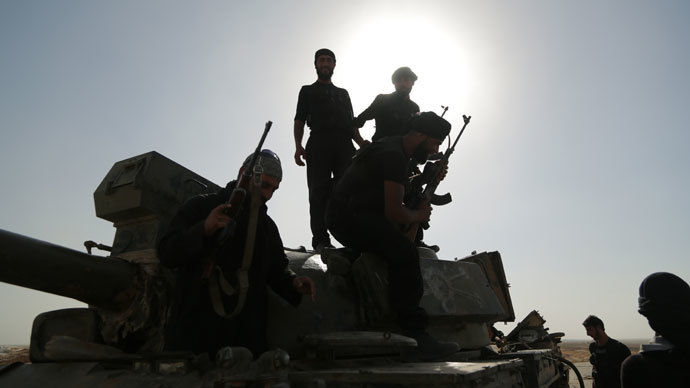Year of diplomatic breakthrough on Syria

2013 will remain in everybody’s memory as a watershed in international affairs.
World development has been increasingly complex and dynamic in nature both at the global and regional levels, undermining old certainties and leaving no room for simplistic assumptions. Under these circumstances, Russia has acted firmly, reasonably and thoughtfully, as should a major and responsible state.
We have been focusing on strengthening the rule of law in international affairs with the UN playing a central coordinating role. Russian diplomacy has proceeded from the need to respect the peoples’ right to determine their own future, without outside interference.
This policy of principle and Russia's ability to develop and consistently implement a clear and coherent position based on the principles of law and justice has enjoyed the support of the overwhelming majority of the international community and has been an important driver in ensuring stability and balance in international affairs at this time of change. It has contributed to a joint search for solutions to the most pressing problems.
A case at hand is international agreement on how to approach the Syrian crisis. It is based on common sense and the logic of peace, and rejection of power politics. This was the result of joint work with our American and European partners, as well as Chinese friends. A year ago, nobody could believe that discussions on an international conference on Syria would bring results. Now we have fixed the date, venue and conditions for the conference.
Russia’s active stance has contributed to achieving the breakthrough and starting the practical work on placing the Syrian chemical weapons under international control with their subsequent destruction. The work is now underway. The destruction of chemical weapons will require solving much more complicated problems through combined efforts of many countries. When implemented, it will become an important step in strengthening the regime of WMD non-proliferation. Among other things, Russia plans to allocate two million euros to the OPCW and provides the Syrian authorities with vehicles and other equipment needed for this task. The fact that the process of Syria’s chemical disarmament has been quite successful largely owes itself to an open and constructive approach of the Syrian government to cooperation with the OPCW.

The decision on destroying Syria’s chemical arsenals creates a positive background for international efforts to find a negotiated solution to the Syria crisis, including an international conference aimed at launching an all-Syrian inclusive national dialogue without any preconditions. The main problem now is to understand how representative the opposition’s delegation will be. The National Coalition, which our Western and some regional partners have positioned it as almost the sole legitimate representative of the Syrian people, is far from being united. It is also unclear to which extent this Coalition controls those who fight “on the ground”. Jihadists, including those from foreign countries, dominate among the anti-government fighters. The Free Syrian Army, which is also presented by our Western partners as a secular force, ready to seriously negotiate the future of their country, is losing ground to the extremist groups, including those associated with Al-Qaeda and on terrorist lists in the US, EU and UN. And a newly created formation, the so-called Islamic Front, differs little from the Al-Qaeda groups operating in Syria under various names.
The direction in which the crisis in Syria is unfolding is a matter of serious concern. More and more groups obsessed with jihad and rejecting the very idea of coexistence in a multi-religious and multi-ethnic Syria are entrenching in the country. And it is exactly them who present the largest threat to the situation not only in Syria, but in the entire region. At the G8 summit in Lough Erne, leaders agreed that the Syrian Government and the opposition should join their efforts in combating terrorists and extremists, expelling them from the country. Russia has a feeling that gradually, but steadily our partners are coming to understanding that this is a clear and immediate threat. This will be one of the main topics of the conference, which we hope will take place on 22 January in Montreux.
The second problem relates to the circle of the so-called external participants. Russia remains convinced that all parties having an influence on the situation – Iran and Saudi Arabia are definitely among those – should participate. Therefore, we are calling for these two countries to be invited.
Unfortunately, the humanitarian situation in Syria is worsening. The humanitarian agencies operating in Syria blame both sides. But let's look at things in a realistic way. The main reason for this deterioration is the continuing influx of foreign militants and weapons into the country, wide-scale support for radical elements from abroad.
For Russia it is obvious that the Syrian conflict doesn’t have a military solution. Only launching the political process on the basis of the Geneva communiqué, unanimously approved by the UNSC resolution 2118, provides a chance to stop the violence and preserve Syria as a secular, sovereign state with the rights of all ethnic, religious and political groups guaranteed, and, thus, to prevent a severe destabilization of the Middle East region.
The statements, views and opinions expressed in this column are solely those of the author and do not necessarily represent those of RT.
The statements, views and opinions expressed in this column are solely those of the author and do not necessarily represent those of RT.













